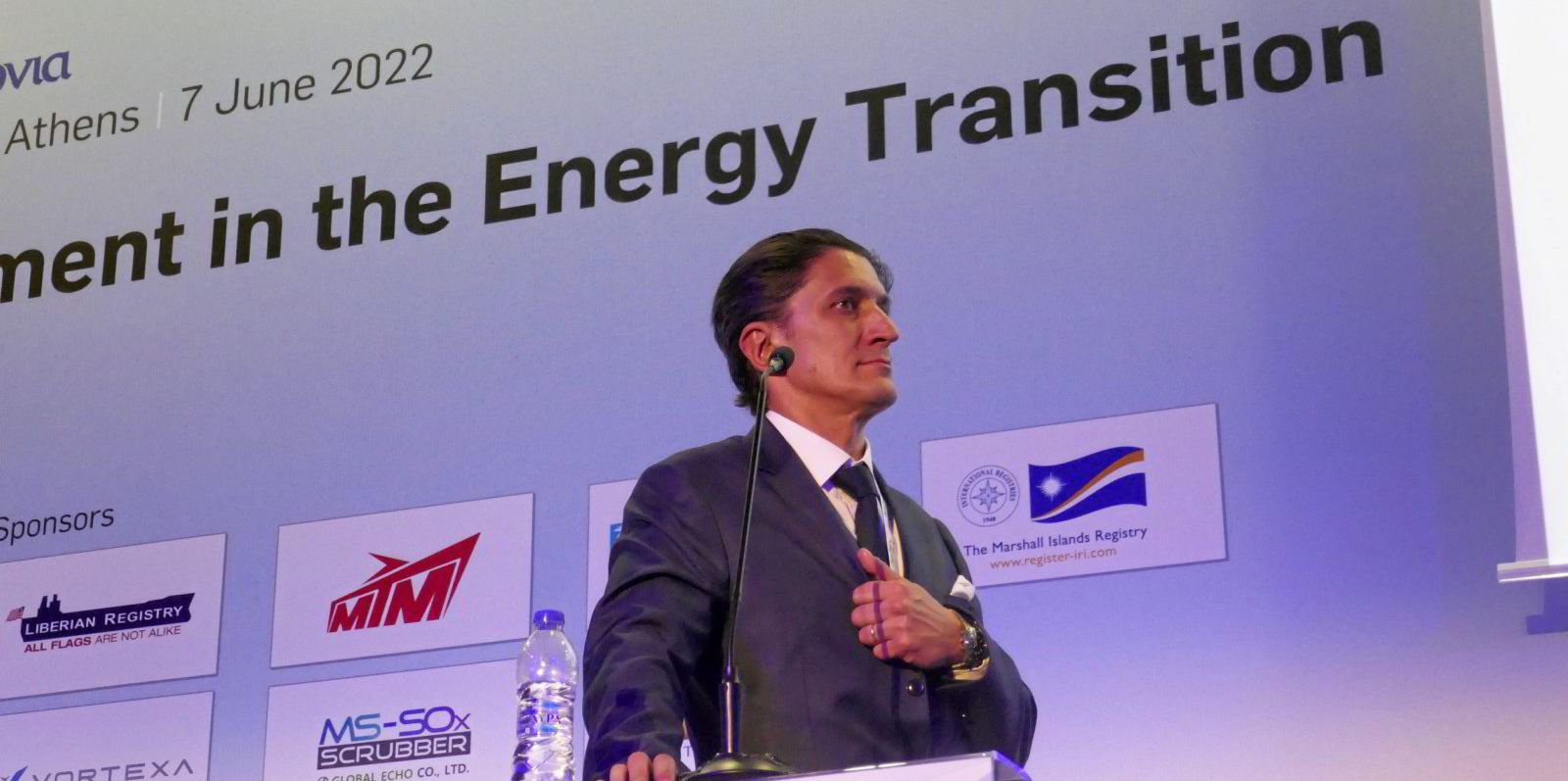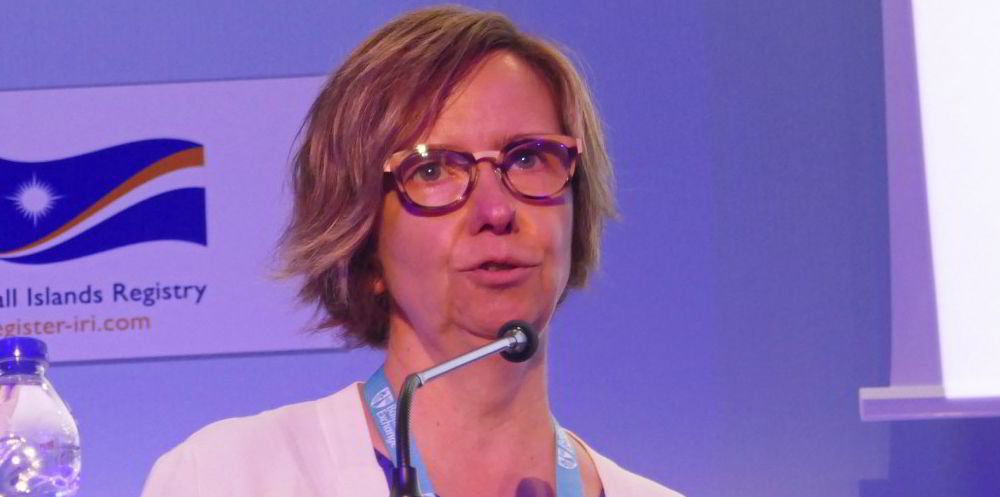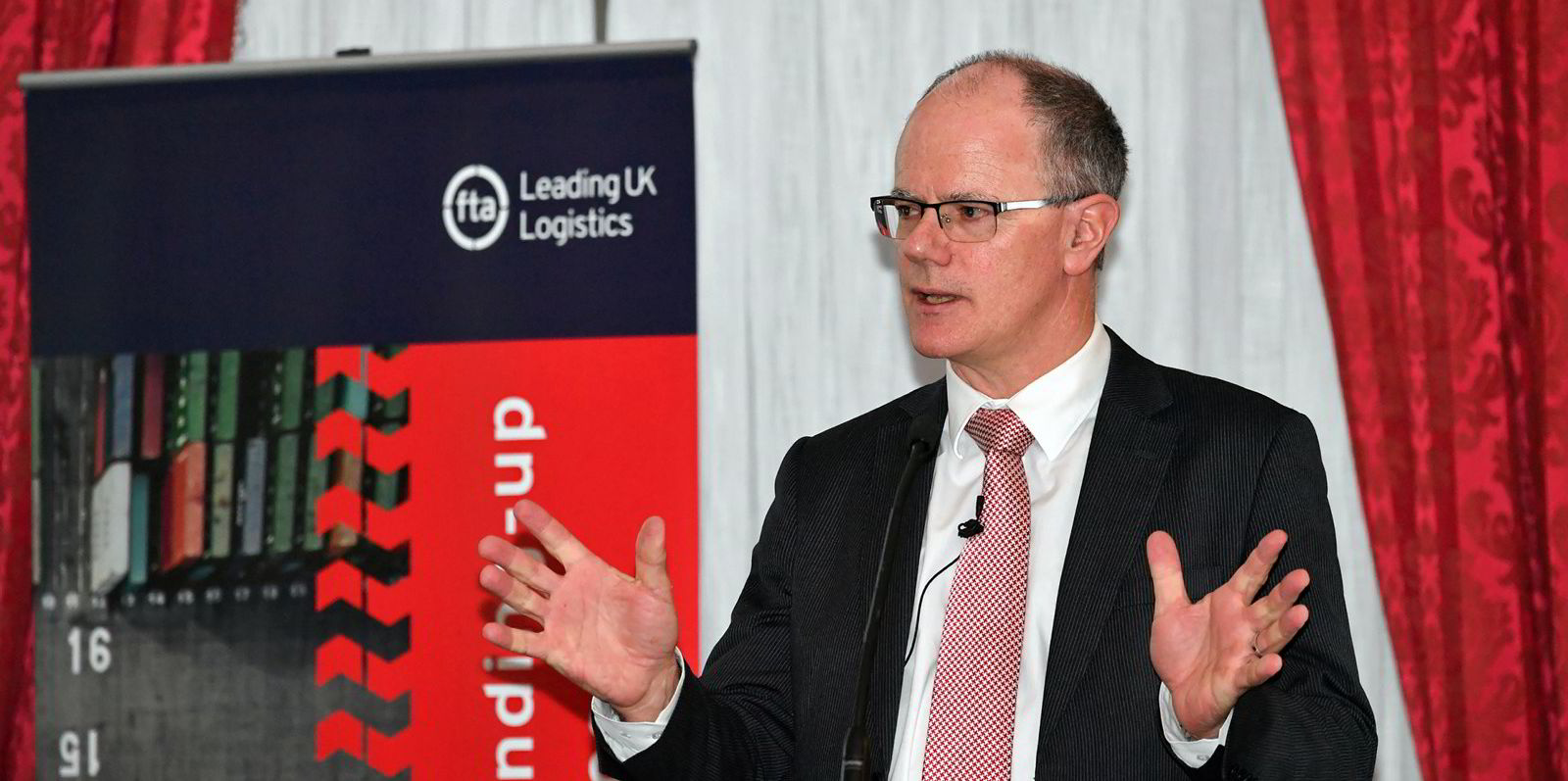Shipowners and their clients could do far more to enhance the operational efficiency of their ships with existing means but fail to do so, driven by narrow self-interest and poor cooperation.
That is the clear message emerging from a heavyweight panel at the TradeWinds Shipowners Forum on Tuesday, the second day of Posidonia.
John Michael Radziwill, chief executive of C Transport Maritime and Goodbulk, said shipping is not doing nearly enough to optimise trades.
Asked to comment by moderator TradeWinds editor-in-chief Julian Bray whether this is due to a gross failure of commercial relationships between charterers and owners, Radziwill said: “100%. I think we should be ashamed of ourselves — myself included, by the way… I’m not the one that might be giving up a competitive advantage either.”
Radziwill pointed to the lack of progress on a long-standing proposal by several shipowners to introduce slow steaming.
“What kills me about it is that no one cares — we haven’t pushed that proposal forward and in the past two years we’ve been polluting more than we needed to,” Radziwill said, adding: “We could have saved money doing it — we would have had more efficient supply chains, which now everyone talks about.”
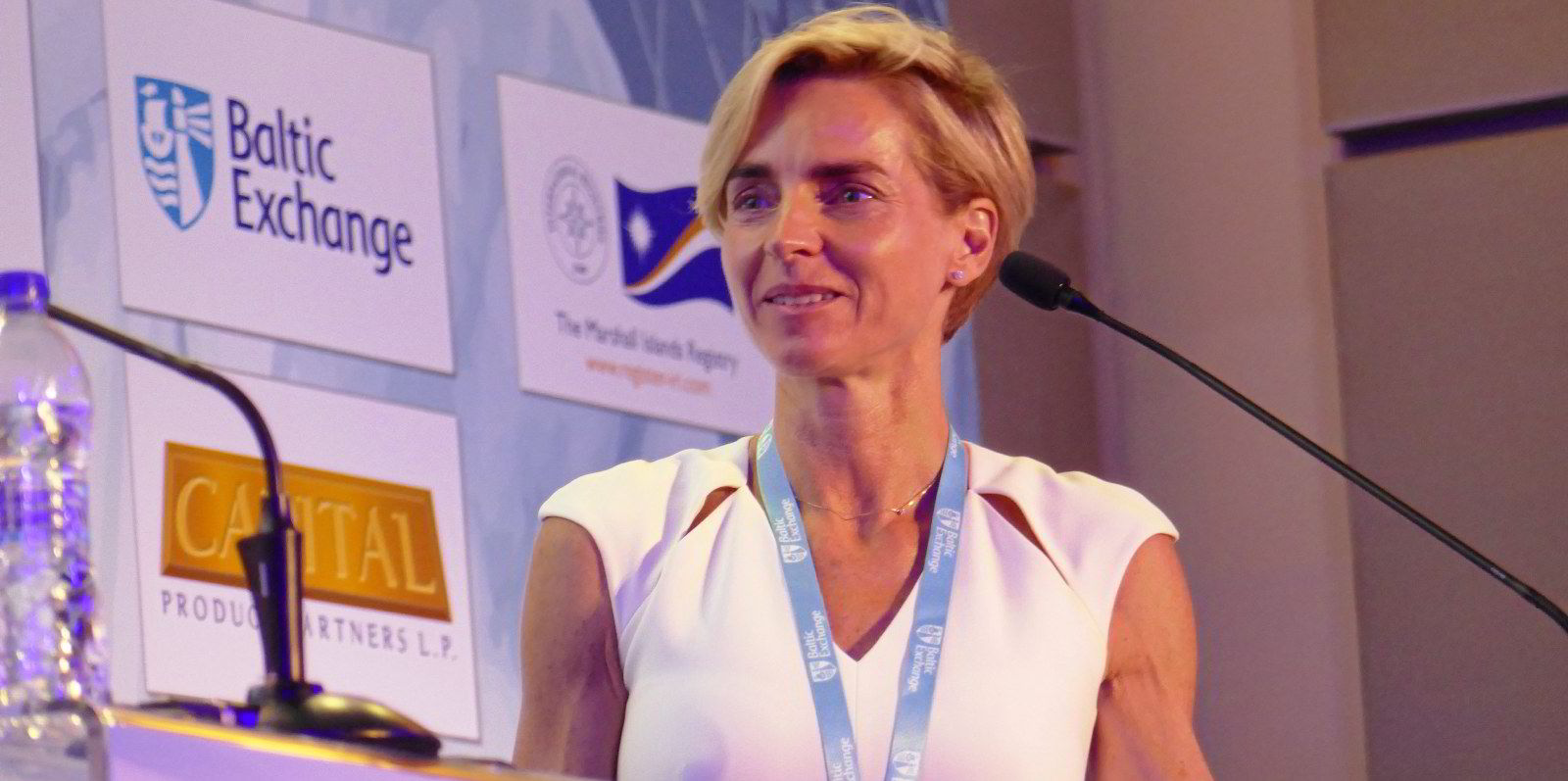
“When there is a traffic jam the police are not waving you forward to go faster to get to the traffic jam. That’s what’s happening to ships right now,” he said.
According to Radziwill, such initiatives would make much more sense than for example, building LNG-powered vessels to carry coal.
‘Just frustrating’
Eva Birgitte Bisgaard, chief commercial officer at Maersk Tankers, also urged the industry to cooperate more between each other and with stakeholders.
“Instead of this discussing about the right way to go [on green shipping], we’re basically discussing who needs to pick up the bill — it’s so frustrating,” Bisgaard said, adding: “A shared feeling of responsibility would be a good thing, this is a team sport.”
The lack of cooperation is more acute in the tanker industry, where charterers “take up a lot of the scenery” vis-a-vis “a lot of scattered owners”. “We need to come together,” Bisgaard said.
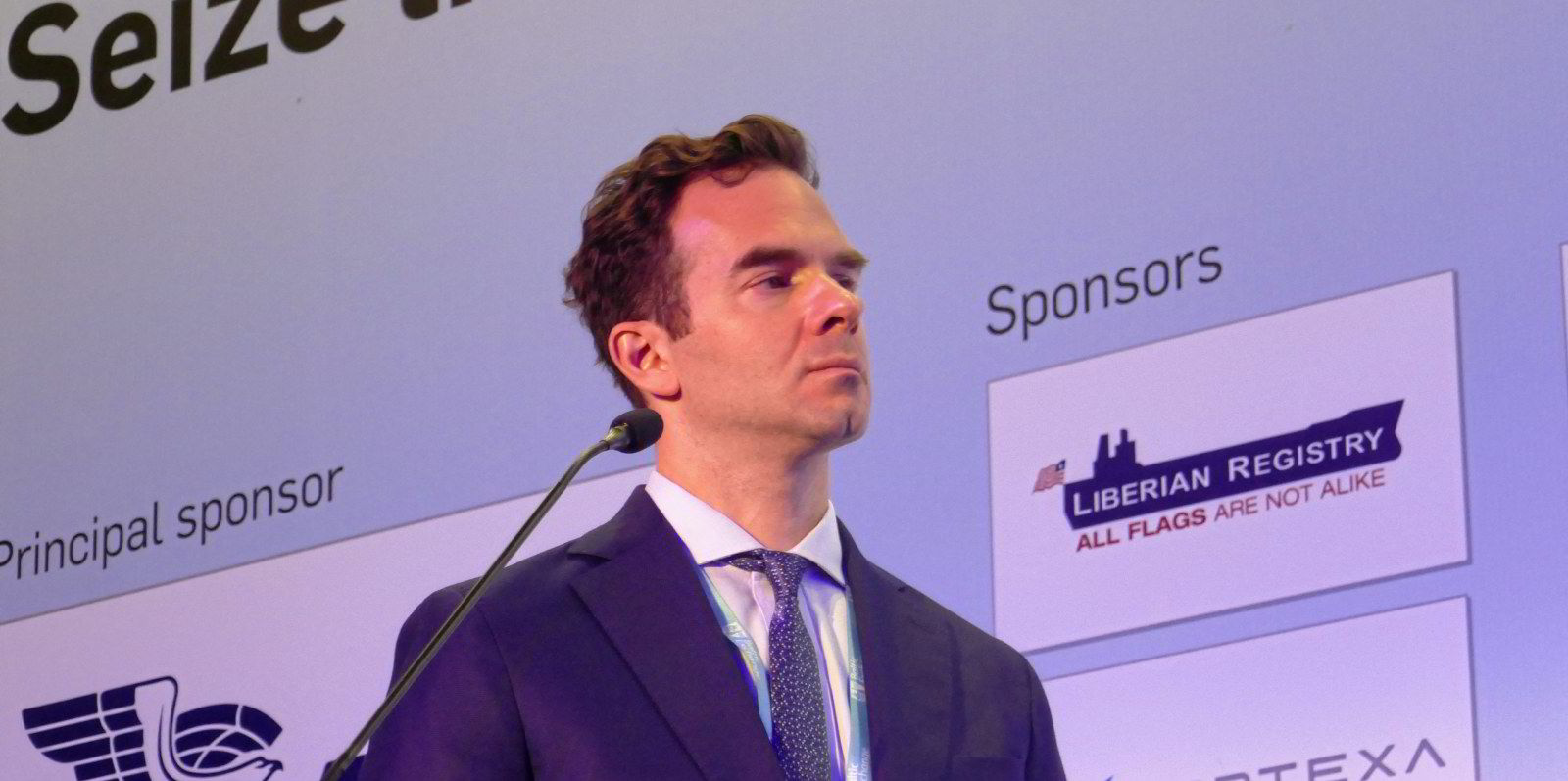
Alex Hadjipateras, executive vice president of business development for gas shipowner Dorian LPG, highlighted the part charterers can play in that equation.
“To reach the [environmental] targets, we need a better alignment between stakeholders,” Hadjipateras said.
No shipowner would want to be “a guinea pig” in experimenting with new kinds of ships and fuels, without a customer to support them.
Customers should “live by what they preach”, Hadjipateras said, pointing to the example of Norwegian oil major Equinor which provided key support in the development of LPG-fuelled vessels.
At the end of the day, the industry will not meet long-term environmental targets without state help, argued Chris Wiernicki, chairman, president and chief executive of classification society ABS.
“You’ll need government support. I don’t think the industry by itself can do that.
“The real problem for us is the steepness of the curve,” Wiernicki said, referring to the level of the required adjustment between 2030 and 2050.
